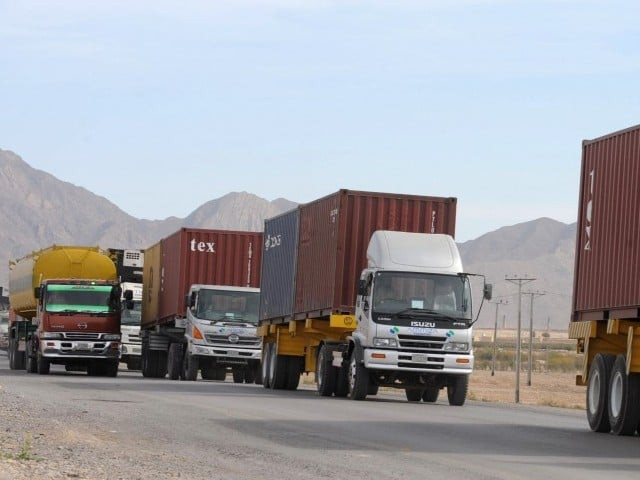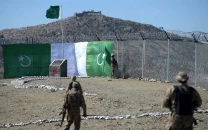A crippling law: Political forces slam extension of customs act to PATA
Claim it will disrupt people’s livelihood, businesses in area

PHOTO: AFP/FILE
A clarifying statement from the Governor House stated this decision was taken by Zafar Iqbal Jhagra’s predecessor Sardar Mehtab Ahmad Khan.
There was confusion, speculation and a host of legal arguments when a notification by the Home and Tribal Affairs department surfaced on March 28 and said the governor, under Clause 3 of Article 247 of the Constitution of Pakistan, extended the Customs Act, 1969 to Malakand Division and tribal areas of Kohistan. Article 247 allows the governor to extend any law passed by the national or provincial assembly to Pata with the approval of the president.
On Saturday, the governor said the summary to extend the act was moved by his predecessor in September 2015 and it was now approved.
There was no consultation with the provincial government and neither were the people of Malakand Division taken into consideration,
MPA Shaukat Yousafzai told The Express Tribune the extension of customs laws to Pata would be like taking revenge from the people of the tribal areas.
“We will raise the issue on every platform and will make sure the government gives it a second thought.”
Qaumi Watan Party (QWP) zonal chairperson Fazlur Rehman Nono, during a party meeting in Swat, also slammed the decision and warned his party would take to the streets. “The time is ripe for the government to consider developing the area, but they are imposing taxes instead,” he added. Legal experts believed the government should have done its groundwork before extending the legislation.
“There is no such legal lacuna to allow the extension of the act to Pata and the government must determine what to do with non-custom paid businesses,” said Barrister Mudassir Ameer, a senior lawyer at the Peshawar High Court.
He said there were around one million non-custom paid vehicles and people had invested millions. The QWP leader said businesses were exempt from custom duty and bringing them under tax net would disturb the people.
“Fata and Pata have almost the same legal status in the Constitution. However, the act has not been extended to Fata and this will definitely alienate people of Malakand Division,” said Shumail Ahmad Butt, a constitutional expert and senior Peshawar High Court lawyer.
He said the government believed non-custom paid vehicles were a headache and were used in terrorist attacks as well as other crimes. However, the government should have consulted people of the area before extending the act.
Awami National Party K-P chapter also rejected the extension of the customs act to Malakand Division. The party said the decision was unjustified and a violation of all promises and commitments made with people of three former princely states that merged with Pakistan in 1969.
ANP provincial general secretary and parliamentary leader in the provincial assembly, Sardar Hussain Babak, said there was no justification to extend this law to a region which is not only undeveloped, but also still reeling from terrorism till today.
Even while promulgating Nizam-i-Adl Regulations in Malakand in 2009, the federal government promised to go ahead with relaxations and relief already declared for the area, he added.
Babak urged the federal government to review is decision otherwise his party will be at the forefront of demonstrations and agitation on every level. He said ANP was going to consult leaders and stalwarts of other parties shortly.
Meanwhile, former provincial minister and ANP Central Additional General Secretary Advocate Wajid Ali Khan also denounced the extension of the customs act to Malakand.
On the other hand, leaders of various political parties decided at a conference to block the extension of the law at all costs.
They decided to meet the governor and president to inform them about the ground realities and problems the residents could face as a result of the extension of the act.
Published in The Express Tribune, April 3rd, 2016.



















COMMENTS
Comments are moderated and generally will be posted if they are on-topic and not abusive.
For more information, please see our Comments FAQ